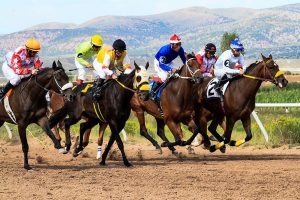Competition was in the middle of my life when I need to prepare for the nationwide university entrance exam along with two million students in my age. Based on the performance of three hour exam at the end of the high school, the students are being ranked and the ones on top of this ranking have privileged to enter the most popular programs of the prestigious universities. In that context, we were like racing horses ridden by our schools, teachers and parents. There was no room for resting and it was coming with a bit of guilty and panicked even you chose to rest, particularly you were observing some of your friends did not dare to spend their time as you did. It was really tough your friends around you were in fact your rivalry as well. As you guess the remedies from those days are still alive in somewhere inside me. Without any surprise I have been observing that I share those common points with other people from different background and roots through my academic career so far. In my opinion, the feeling of competition and rivalry are the first ones to break to create openness and tendency to share between the students.

taken from: https://www.pxfuel.com
So the following question keep flashing in my mind during Topic#2 was how the racing horse can be converted to cooperating ants. How can we open this way in classroom level? How can we promote a culture of informal learning? Promoting group work seems good start point. The benefits of group work ranges from increased efficiency, getting best performance from all individual team members to having a chance of backing up the others’ mistakes. All in all, the students, particularly racing horses, will realize that they can learn from the others so the teachers/books/online resources are not only way to enlarge their knowledge. At this point, only introducing some group works are not being sufficient because group work simply means splitting up the existing workload into small sub-works and they can only carry out their individual tasks, which should not be goal of the group work. Unfortunately most of them might not have any clue for collaborating with the others. From this aspect, it is necessary to guide them step by step on how to collaborate and keeping the interaction alive between the group members. For good blog reading, I will recommend to read this link for further interest.

taken from https://www.pxfuel.com
Another thing for promoting openness and sharing the knowledge, grading methodology related with small tasks and exams can be icebreaker to remove the competition feeling and disseminate the feeling of shared and openness among the students. To do so, the approach for open pedagogy can be integrated into the course design. By this way, the students are being encouraged to try new approaches without fear of failure in their course works among with the peers. In grading methodology, collaborative work can be rewarded more, in other words, making them more invested in and connected to the work of their peers. The instructor can benefit from problem-based learning methods as well. From my personal experience, I would like to say that relative grading might trigger competition among the students since the failure of the majority introduces better grade for the others since the grades are given according to class average. However, in absolute grading (the ones more popular in my home organization), the grade-scales are predefined and there is no effect of the others’ grades.
Creating feedback mechanism between the students and lectures in curriculum design can be good example of promoting openness as well. Collaborative course development introduces the students an opportunity to be involved their own learning. By this way, the lecturers can be good example for them to remove the existing barriers between teachers and the students can feel that they are valued members of their home organization. In this way, they can learn the benefit of working as team within well-structured organization and it can motivate them to work with peers in their courses.
All in all, during the topic#2, I tried to explore how we can promote group work in the classroom level so openness and tendency of sharing the knowledge among peers turn into a habit rather than enforcing from top level in the higher education. I believe those findings mentioned above are just a tip of iceberg and new angles will be introduced after integrating the developments in AI technology into the education.